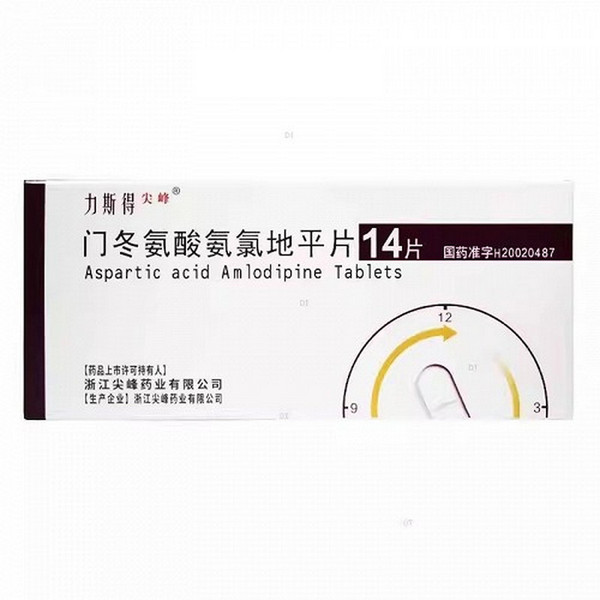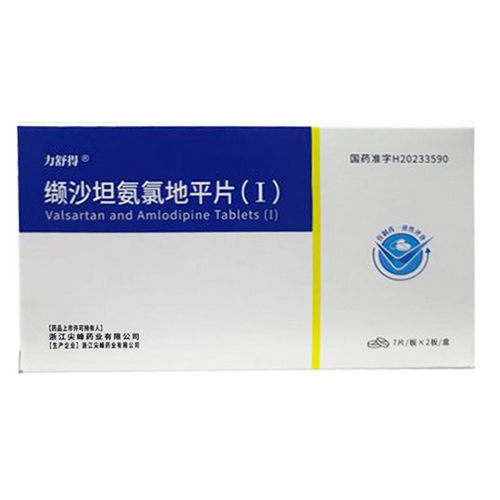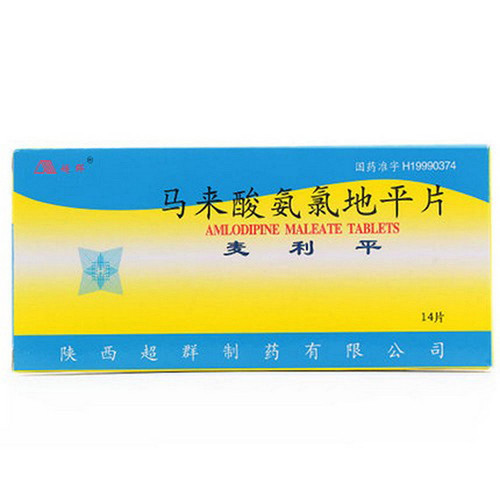Product Overview
[Drug Name]
Generic Name: Amlodipine Aspartate Tablets
Trade Name: Lisde
English Name: Aspartic Acid Amlodipine Tablets
Chinese Pinyin: L-Mendong'ansuan'anlvdiping Pian
[Ingredients]
The main ingredient is amlodipine.
[Properties]
This product is a tablet.
[Indications]
Can be used alone or in combination with other antihypertensive drugs to treat hypertension.
[Dosage and Administration]
Oral: Once daily, one tablet at a time. Can be increased to once daily, two tablets at a time.
[Adverse Reactions]
Common adverse reactions include headache, edema, fatigue, insomnia, nausea, abdominal pain, flushing, palpitations, and dizziness. Less common adverse reactions include angina pectoris, hypotension, bradycardia, systemic hypotension, itching, rash, dyspnea, weakness, muscle cramps, and indigestion. This drug is similar to other calcium channel blockers. Reports of adverse reactions such as myocardial infarction and chest pain are rare, and these reactions cannot be clearly distinguished from the patient's underlying medical condition. No abnormal laboratory parameters have been found to be associated with this drug.
[Contraindications]
This drug is contraindicated in patients allergic to dihydropyridine calcium channel blockers. It is also contraindicated in the following conditions: 1. Severe hypotension; 2. Aortic valve stenosis.
[Precautions]
1. Patients with impaired liver function: As with all other calcium channel blockers, the half-life of this drug is prolonged in patients with impaired liver function, but a recommended dose has not yet been established. Therefore, caution should be exercised when using this drug in this setting. 2. Patients with renal failure: This drug is extensively metabolized to inactive metabolites, with only 10% of the drug excreted unchanged in the urine. Therefore, changes in blood drug concentrations are not correlated with the degree of renal impairment. Patients with renal impairment can use the normal dose. This drug is not dialyzable. 3. Like other calcium channel blockers, this drug may rarely cause gingival hyperplasia, typically occurring within 1-9 months of treatment. However, symptoms and hyperplasia may improve 1-21 weeks after discontinuation of treatment. 4. It is not necessary to discontinue the drug before surgery, but the anesthesiologist should be aware of the use of this drug.
[Use in Special Populations]
Precautions for Pediatric Use: No data are available for the use of this drug in children.
Precautions for Pregnancy and Lactation: The safety of this drug in pregnant and lactating women has not been established. In animal studies, administration of 10 mg/kg of this drug to rats resulted in delayed delivery and dystocia, a 5-fold increase in intrauterine mortality, and a 50% decrease in litter size. Therefore, this drug should only be used when there are no safer alternatives and the underlying condition poses a greater risk to mother and child. There are no reports on whether this drug is excreted into breast milk.
Precautions for the Elderly: The time to peak plasma concentration of this drug is similar in elderly and younger patients. Elderly patients have an increased area under the concentration-time curve (AUC) and a prolonged elimination half-life, resulting in a decreased clearance rate. There are reports that elderly patients tolerate amlodipine as well as younger patients at similar doses. Therefore, elderly patients can use the normal dose, but it is advisable to start with a lower dose and then gradually increase the dose.
[Drug Interactions]
1. Anesthetics: Concomitant use of inhaled hydrocarbons with this drug may cause hypotension. 2. Nonsteroidal anti-inflammatory drugs, especially indomethacin: Concomitant use with this drug may reduce the antihypertensive effect, possibly due to inhibition of prostaglandin synthesis and/or water and sodium retention. 3. Beta-blockers: Concomitant use with this drug is well tolerated but may cause excessive hypotension and, in rare cases, increase the risk of congestive heart failure. 4. Estrogens: Concomitant use with this drug may increase fluid retention and blood pressure. 5. Sulfinpyrazone: Concomitant use with this drug may increase the protein binding of amlodipine, resulting in changes in blood drug concentrations. 6. Lithium preparations: Concomitant use with this product may cause neurotoxicity, manifested by nausea, vomiting, diarrhea, ataxia, tremor, and/or numbness. Use with caution. 7. Sympathomimetic amines may attenuate the antihypertensive effect of this product.
[Pharmacological Action]
This product is a calcium influx blocker (also known as a calcium channel blocker or calcium ion antagonist) that selectively inhibits the transmembrane influx of calcium ions into vascular smooth muscle and myocardial cells, with a particularly potent effect on vascular smooth muscle. This product reduces peripheral resistance (afterload) by directly relaxing vascular smooth muscle and dilating peripheral arterioles, and can significantly dilate coronary arteries. This product has a negative inotropic effect in vivo but has no effect on the sinoatrial and atrioventricular nodes.
[Storage] Store in a sealed container away from light. [Strength] 5mg (calculated as amlodipine)
[Packaging] 5mg x 14 tablets
[Expiry Date] 24 months
[Approval Number] National Medicine Standard H20020487
[Manufacturer] Zhejiang Jianfeng Pharmaceutical Co., Ltd.









